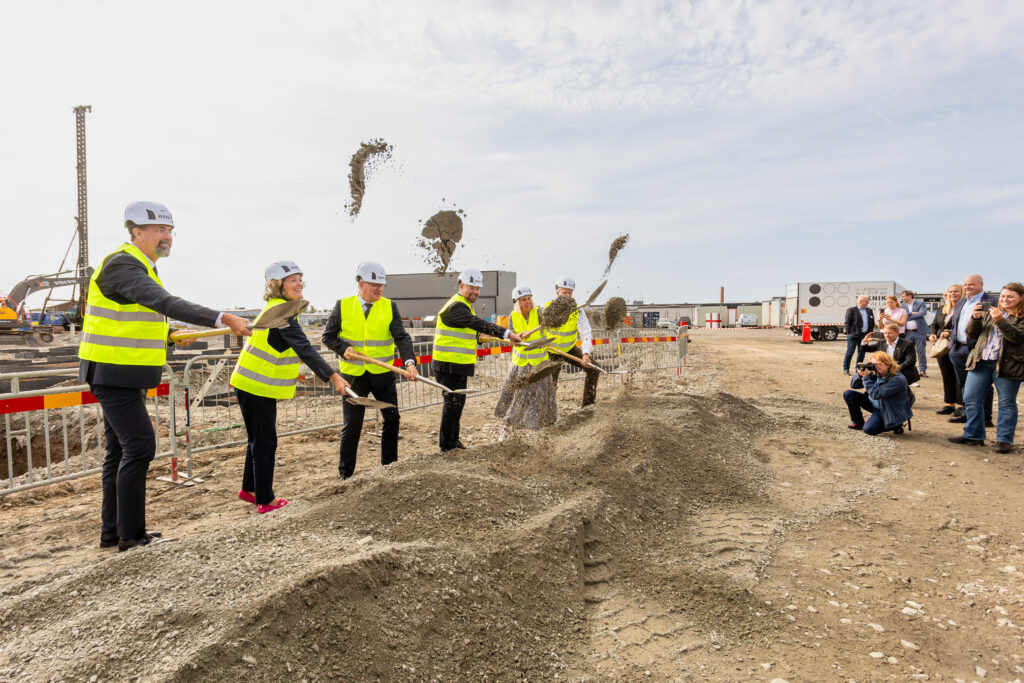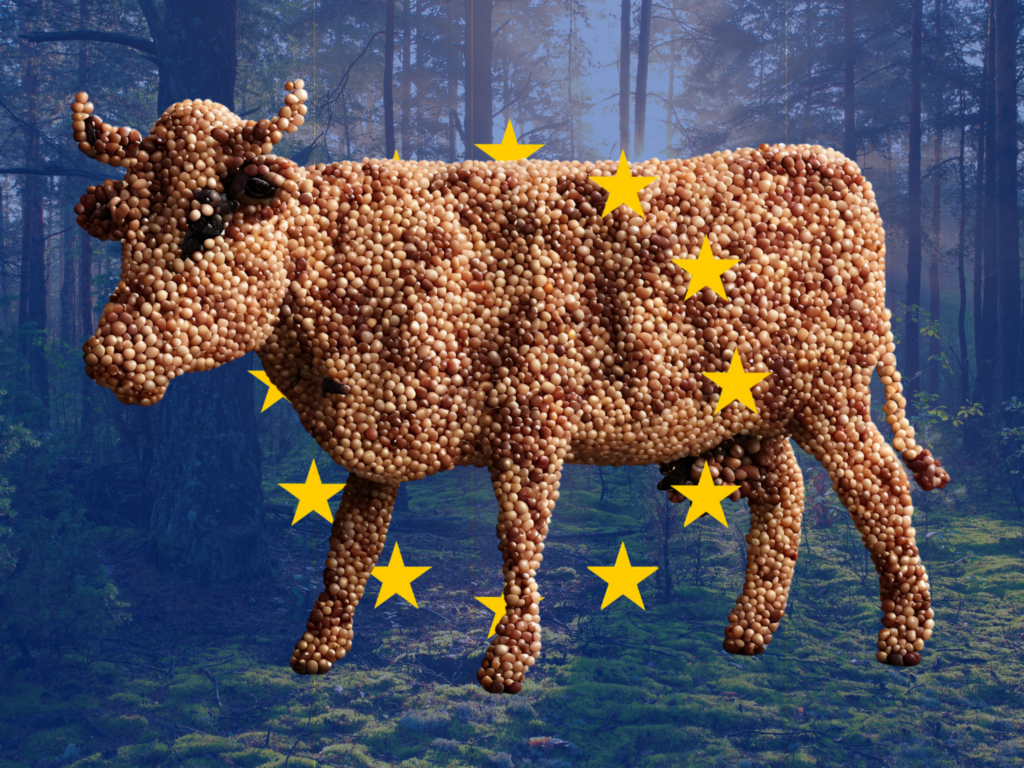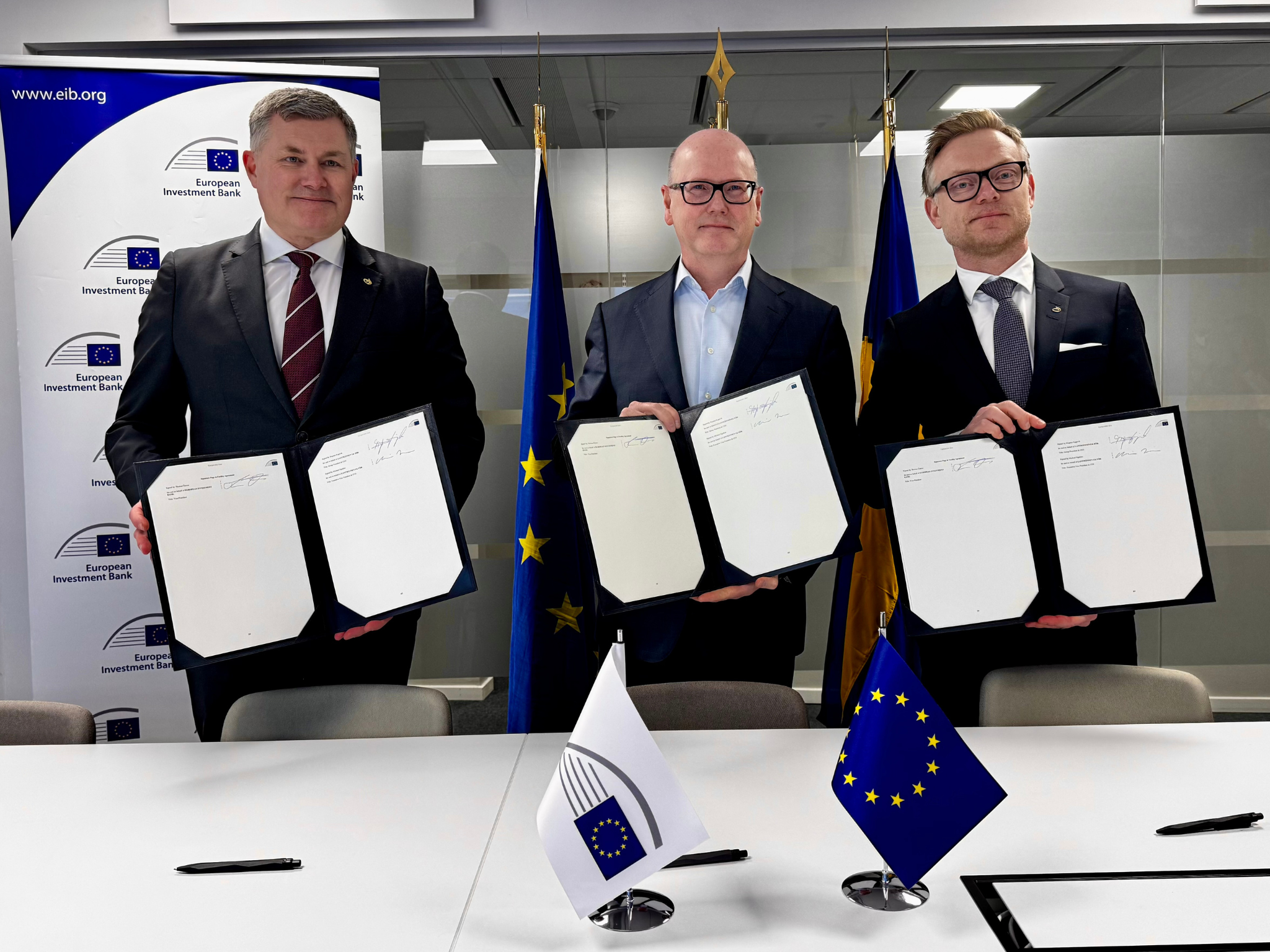EU Grants €50M Loan for Swedish Ag Giant to Build Pea Protein Factory for Meat Alternatives
4 Mins Read
The European Investment Bank has provided Swedish agricultural cooperative Lantmännen with €50M in part financing for a pea protein isolate factory.
Lantmännen, Sweden’s largest farmer cooperative, has received a big boost from the EU to build a large-scale plant protein facility and supply ingredients to makers of meat and dairy alternatives.
The European Investment Bank (EIB), which is owned by EU member states, has handed a €50M ($55M) loan to Lantmännen to help fund the construction of a new pea protein isolate factory in Sweden’s Lidköping municipality. The financing will cover about half of the project’s cost.
The investment aims to strengthen the EU’s food security and reduce its reliance on imported plant proteins, amid calls for a diversifying the bloc’s protein supply in the face of the climate crisis.
All of the EIB’s investments are aligned with the goals of the Paris Agreement, with 60% of its annual financing supporting projects directly contributing to climate change mitigation and adaptation.
Lantmannen factory to process 40,000 tonnes of peas annually

Described as Sweden’s first such facility, it was announced last year, with Lantmännen – owned and governed by 17,000 farmers – earmarking an investment of 1.2 billion Swedish kronor ($116M).
The site would be able to process up to 40,000 tonnes of peas grown by the group’s members every year, producing around 7,000 tonnes of protein. It’s expected to be completed in the first half of 2027, and contribute up to 30 new jobs in the region.
It will produce plant proteins for use in applications like protein bars, drinks, breads, as well as non-dairy alternatives and meat analogues. The group explains that peas and beans are climate-smart, versatile crops that require relatively little water and nutrients, and benefit biodiversity.
Lantmännen argues that ramping up the use of Swedish-grown legumes could help lower the share of imported soy in the region’s food production, bolstering both Sweden and the EU’s sustainability goals.
“It is gratifying that the European Investment Bank sees the long-term value in our investment in the food of the future – plant-based protein – and chooses to support our facility in Lidköping,” said Lantmännen CFO Michael Sigsfors.
“Promoting exports and increasing food production leads not only to increased profitability for farmers but also to more robust food security. It is a fine and important assignment, and I am pleased that the European Investment Bank supports our work with this.”
In addition to the facility, the group is working with Örebro University’s PAN Sweden research centre on a state-funded plant protein project and has partnered with ingredient giant Ingredion to speed up the development of pea protein isolates. Moreover, it is part of a consortium with the Chalmers University of Technology and dairy leader Arla, which is focused on advancing fermentation research and developing hybrid foods.
EU steps up protein diversification efforts

For the EU, the Lantmännen loan is its latest effort to boost self-sufficiency in plant proteins, promote climate-friendly farming, and lower agriculture’s planetary impact.
It comes as EU decision-makers are asked to accurate the protein transition towards plants, given the animal agriculture industry’s outsized impact on the planet. Livestock farming accounts for 81-86% of agricultural emissions in the EU, despite only providing 35% of its calories and 65% of its protein supply.
Farmer groups and climate activists have both urged the EU Commission to deliver an action plan for plant-based food in its agrifood vision, a call backed by doctors, consumer groups, and even some of the largest food companies. While the Commission did not make that commitment in the final plan, it has pledged to create a protein diversification strategy to address the EU’s protein supply challenges.
“It will focus on fostering the domestic production to improve self-sufficiency to reduce the long-standing dependency on imported plant-based protein and on diversifying imports of plant-based protein to increase the EU food security,” Agriculture Commissioner Christophe Hansen wrote in a letter last month.
The EU, meanwhile, has been doubling down on its future food investments through various initiatives. It spotlighted several startups at EIT Food’s flagship Next Bite event last year, has included a number of alternative protein firms in its accelerator programmes, and invested €50M in precision-fermented and algae-based foods via the European Innovation Council.
This is part of the EU’s broader leadership in research funding for alternative proteins. Since 2020, the region has pumped in €252M for future food research, half of which came in 2023 and early 2024, according to GFI Europe.
“By supporting Lantmännen’s investment in the production of pea protein, we are strengthening both food security and climate work in Sweden and the EU,” said Thoman Östros, vice president of the EIB. “It is also a very good example of how European cooperation can create local benefits.”



